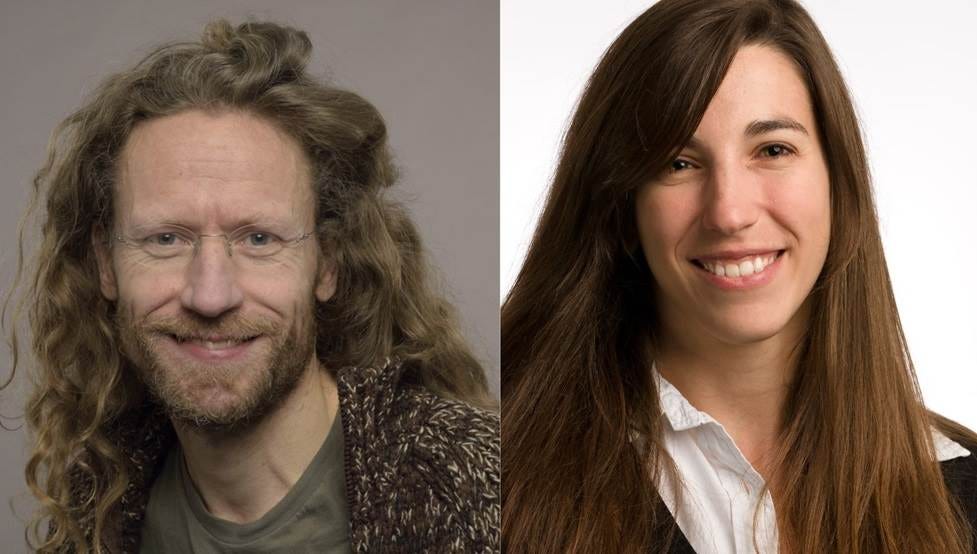The University of Amsterdam and Netherlands Cancer Institute have joined forces at the AI for Oncology Lab to develop AI algorithms that could improve cancer treatment.
IAmSterdam
3 August 2021
AI for oncology
A new collaboration between the Netherlands Cancer Institute (NKI) and the University of Amsterdam (UvA) will research the development of AI algorithms to improve cancer care.
The AI for Oncology Lab at the Amsterdam Science Park’s Innovation Centre for Artificial Intelligence (ICAI) will bring together PhD and postdoctoral students, software engineers and medical experts.
The AI for Oncology Lab at the Amsterdam Science Park’s Innovation Centre for Artificial Intelligence (ICAI) will bring together PhD and postdoctoral students, software engineers and medical experts.
They will be guided by scientific directors Jan-Jakob Sonke and Clarisa Sánchez Gutiérrez, and lab manager Jonas Teuwen.
Sonke, a research group leader at the NKI and professor at the UvA, told I amsterdam there is “a large potential to be unlocked” in AI and oncology. Sánchez Gutiérrez believes Amsterdam provides “one of the most exciting playgrounds” for this research.
“AI has been around for decades, but it has gained a lot of momentum in the last five years or so with computational power increasing, with algorithms becoming more intelligent,” Sonke said.
“This also coincided with the development of our strategy for 2030; every 10 years or so, we sit down and think what we believe are the important themes to focus on the next decade, and AI was on the table as one of the potentials that we haven’t been that strong in the past and we’d like to invest strongly in the years to come.
“We have a strong oncological background but we are not born and raised in AI, that’s why we reached out to the UvA, from my perspective one of the strongest centres at least in Europe, or wider, in AI.”
“We have a strong oncological background but we are not born and raised in AI, that’s why we reached out to the UvA, from my perspective one of the strongest centres at least in Europe, or wider, in AI.”
Sánchez Gutiérrez, Professor of AI and Health at the UvA, added: “We are seeing in the last years AI has been embedded in many different fields, and in fields closer to society. Healthcare is one of these. I think this collaboration gives us the opportunity to make that link even stronger, and apply (AI) more fundamentally to society’s challenges.”
AI solutions based on patient data
Using complex data gathered from patients during and prior to treatment through medical imaging, pathology, DNA, and more, AI solutions based on this information can assist doctors in finding and applying the right treatment.
Using complex data gathered from patients during and prior to treatment through medical imaging, pathology, DNA, and more, AI solutions based on this information can assist doctors in finding and applying the right treatment.
Potential applications of AI to be studied include guiding medical interventions, such as radiotherapy, accurately to the location of the tumour without damaging healthy tissue.
Another is using AI in breast cancer screening, to identify which lesions remain indolent — meaning it will grow slowly — and which could progress to invasive breast cancer, potentially avoiding physically and mentally difficult treatment.
Sánchez Gutiérrez said: “One of the things we have seen in the last years is doctors have been more open to new technologies we have been showing in the field with remarkable results that we haven’t seen before.
What we want to do with this lab is not an external thing. It’s something internal that we create together.”
“We shouldn’t create black boxes,” Sonke added, referring to AI systems whose calculations are not easily known or easily understood.
“When the computer says option A or option B we should be able to understand why the computer comes to that conclusion.”
What we want to do with this lab is not an external thing. It’s something internal that we create together.”
“We shouldn’t create black boxes,” …
“When the computer says option A or option B we should be able to understand why the computer comes to that conclusion.”
Amsterdam as a ‘living lab’
Considered one of the most AI-ready cities in the world, Amsterdam is committed to developing AI that tangibly improves society.
The AI Technology for People coalition, of which UvA and NKI are members, is helping the city design and deploy responsible AI in healthcare, business and citizen support.
The Dutch capital is also proving to be an effective ‘living lab’ for research centres and startups to test AI solutions.
Sonke added: “Many scientific discoveries happen because of crossovers in different fields. Being embedded in this ecosystem with lots of AI perspectives helps to generate ideas, learn from others and grow.”
Original published at https://www.iamsterdam.com
Names mentioned
They will be guided by scientific directors Jan-Jakob Sonke and Clarisa Sánchez Gutiérrez, and lab manager Jonas Teuwen.













